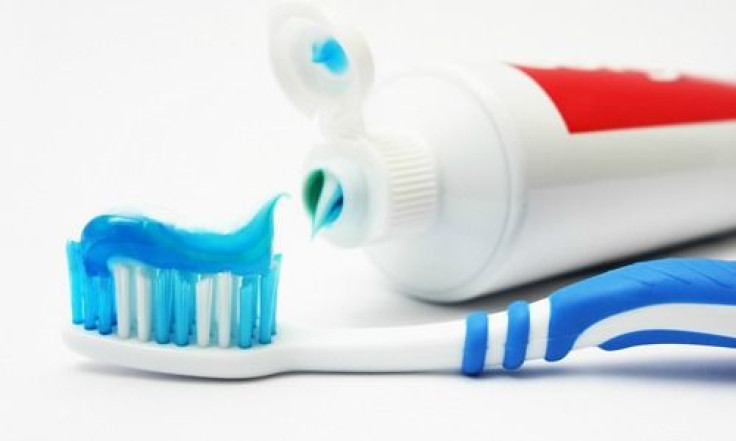Colgate Total Is FDA-Approved, Even With Known Cancer-Causing Ingredient: Can We Really Trust Federal Health Safety Standards?

Colgate-Palmolive Co.’s Total toothpaste is the number three best-selling brand in the United States — and a never-before-seen report filed with the Food and Drug Administration (FDA) reveals it contains triclosan, an antibacterial agent that’s previously been linked to cancer.
The report is the initial toxicology summary Colgate conducted and submitted to the FDA as part of its approval process. Facing a Freedom of Information Act-related lawsuit — a law that gives consumers the right to request access information from the federal government — the FDA had no choice but to release product information.
As it turns yet, when Colgate was testing their product 17 years ago, their mice and rat studies resulted in delayed born formation in the skull, vertebrae, and pelvis, as well as premature birth — a result Colgate deemed irrelevant because they were "incidental," not a result of the given dose.
“We have created a system where we are testing these chemicals out on the human population. I love the idea they are all safe,” Thomas Zoeller, a biology professor at the University of Massachusetts Amherst, told Bloomberg News. “But when we have studies on animals that suggest otherwise, I think we’re taking a huge risk.”
The risk is that, in addition to these buried bone malformations, a study published in the journal Chemical Research in Toxicology found in lab tests, triclosan spurs breast cancer growth. Other research indicates ingredient exposure is linked to germs, allergies, and asthma.
In the same Bloomberg report, Zoeller said an estimated 800+ chemicals are believed to disrupt a person's hormones, thus causing abnormal cell growth. Triclosan, however, is among the chemicals peoplea are frequenlty exposed to. It’s used in several personal- and household-care products, which accounts for the Centers for Disease Control and Prevention report that found triclosan in 75 percent of Americans' urine samples.
The ingredient has been under so much fire that Minnesota went as far as to ban it entirely. In fact, Johnson & Johnson has pledged to remove the ingredient from all their products by the end of 2015. And Colgate has even removed the ingredient from their hand- and dish soaps, but so far doesn't intend to do so for their toothpaste.
Colgate is, of course, pointing a finger at the FDA, saying it was their decision to withhold the documents in the first place. Which may be what’s truly unsettling, that the FDA would approve a risky product.
Unfortunately, this isn't the first time the FDA is guilty of burying critical research. In early 2014, the Natural Resources Defense Council released a report, titled “Playing Chicken with Antibiotics,” that revealed the FDA had found 18 types of antibiotics approved in farm-animal feed were capable of increasing antibiotic resistance in humans. It was the FDA's own research, and they failed to act on it.
The FDA may gamble with consumer trust, but it doesn't mean consumers have to stand for it. The NRDC proposes Congress, food industry leaders, and consumers speak up and insist on product transparency.
Oh, and consider swapping that Colgate for triclosan-free brands, like Solay and Tom's of Maine. The more consumers do to minimize their chemical exposure, the better their health will be.



























